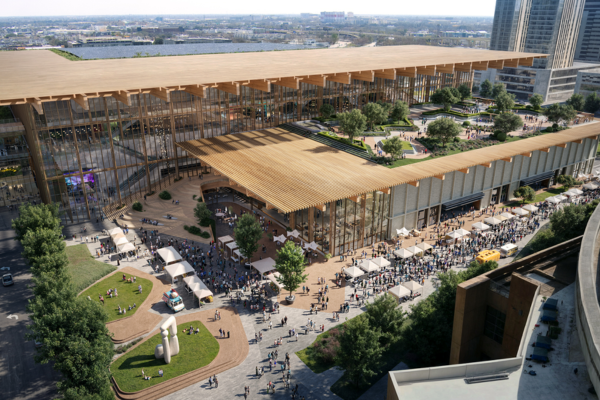Tilman Fertitta Talks Hospitality, Sports and Building a Houston Legacy
Published Nov 07, 2019 by Julia McGowen
While outsiders are just beginning to give Houston’s eclectic and booming dining scene its due, many Houstonians recognize the city has long been building a competitive hospitality scene. And few have played as big a role in crafting Houston as a destination as Tilman Fertitta, Chairman and CEO Landry's, Inc.
Fertitta, in many ways, epitomizes Houston’s entrepreneurial spirit. A Galveston native whose business determination developed at a young age while working at his family’s seafood restaurant, he later worked his way through the University Houston’s Conrad N. Hilton College of Hotel and Restaurant Management and was barely an adult when he started his first company.
Today, Fertitta owns more than 600 properties in 36 states and over 15 countries that employ more than 60,000 workers, making him one of the largest employers in the nation.
Coming on the heels of his recently released book, Shut Up and Listen! Hard Business Truths that will Help You Succeed, Fertitta engaged in a fireside chat with fellow Partnership board member and Houston Texans President Jamey Rootes, as part of the Partnership’s ongoing Thought Leader Series. The the two discussed developing a culture that drives success, being a resilient business owner, and the significance of Houston institutions.
Sharing insights applicable to all business leaders, Fertitta noted that every business is in the hospitality business, as quality service to stakeholders is crucial in everyday dealings. “A culture of hospitality is businesses’ back of house culture. A culture of hospitality must be there, or it won’t ever get to your customer,” Fertitta said.
Though Fertitta has experienced great success, he attributes much of that to remaining resilient throughout cyclical downturns. “After the ‘80s crash, I bought Willie G’s, and just after that, restaurants really heated up,” said Fertitta. He pointed out that this was during a time when banks were being rolled up quickly, making lending challenging. But sticking with the business plan despite the slumps proved profitable for the Landry’s portfolio.
When asked about his history with the Houston Rockets franchise, Fertitta noted that his 2017 purchase of the team for $2.2 billion was not his first try at becoming its owner. After the team’s 1982 sale, he obtained a small ownership stake and was later shyly outbid by Les Alexander when the team was sold again in 1993. While he quipped that he wished for the more than $2 billion in savings, Fertitta said that he was able to build his business into what it is today after missing that former chance at franchise ownership.
The two professional sports leaders also shared anecdotes around how Houston’s major sports teams have helped propel the city’s image and act as catalysts in attracting business and talent. They pointed to the Astros World Series appearances and Houston Texans participation in the NFL’s leg of its London International Series as just a couple examples. Fertitta observed that “sports are the front porch of a community, representing the city and its people, which is attractive to businesses.”
Learn more about living in Houston here and get details on the dining and hospitality industry in Houston Facts.
 The Houston Report
The Houston Report




















